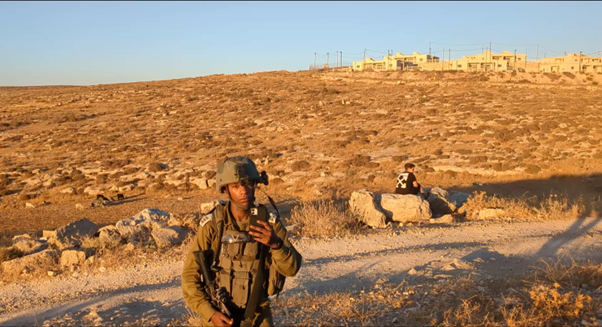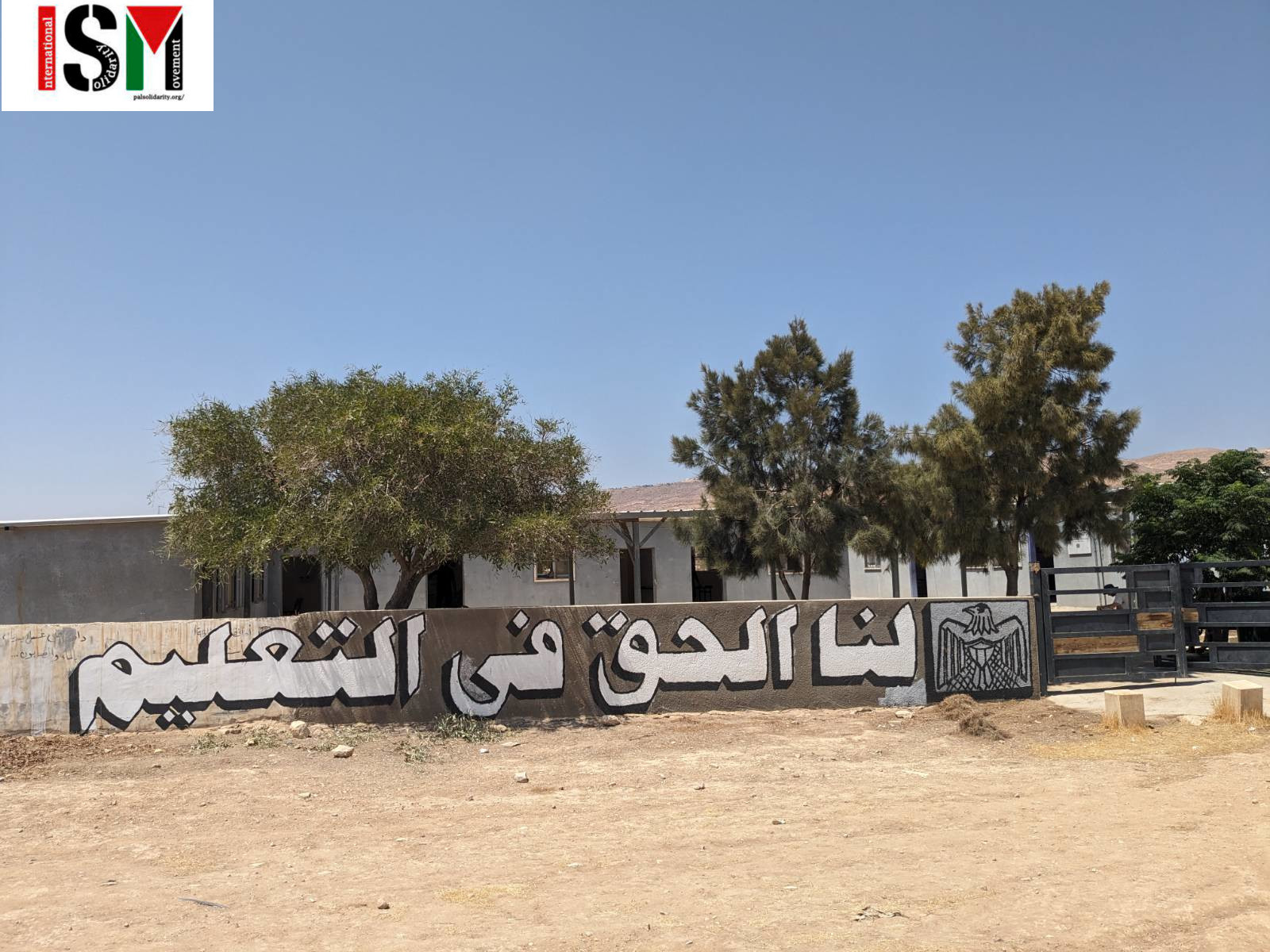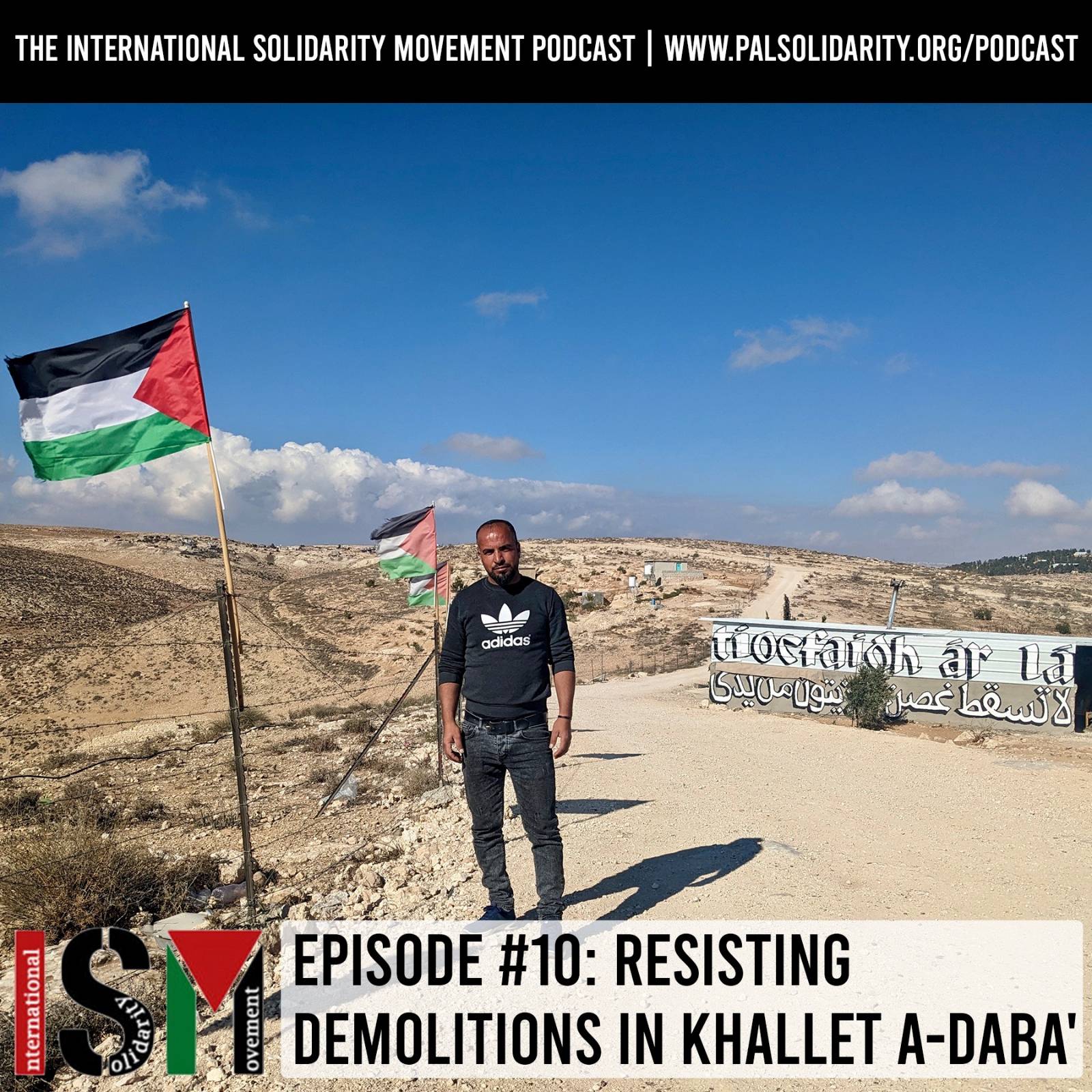Tag: South Hebron Hills
-
Watch: Israeli soldiers harass Palestinian teenager and try to intimidate internationalists in Masafer Yatta
On August 10th, three israeli soldiers harassed Abud Huraini, a palestinian teenager from the village At-Tuwani, in the region of Masafer Yatta in the South Hebron Hills, while he was brining out his flock of goats to graze. The three soldiers arrived by jeep from the illegal israeli settlement of Ma’on, which is located just…
-
Increase in settler violence and threat of school demolition in Masafer Yatta
Following the killing of an Israeli settler in Hebron on Monday 14 August, there has been an increase in the threat and use of violence by Israeli settlers in Masafer Yatta. On Tuesday, three settlers from the illegal Israeli outpost of Avat Ma’on arrived in the village of Tuba with their flock, and got provocatively…
-
International Solidarity Movement Podcast episode 10: Resisting demolitions in Khallet-Al-Daba’
In Episode Ten of our podcast we speak to Jaber from the village of Khallet al-Daba’, in Masafer Yatta, in the South Hebron Hills. The Israeli supreme court has ordered the destruction of several villages in Masafer Yatta, and the occupation wants to destroy Khallet al-Daba’ first. The residents of Khallet al-Daba’ remain steadfast in…



